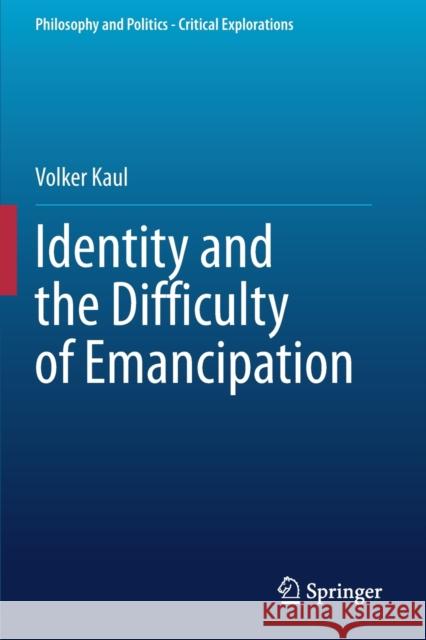Identity and the Difficulty of Emancipation » książka
topmenu
Identity and the Difficulty of Emancipation
ISBN-13: 9783030523770 / Angielski / Miękka / 2021 / 204 str.
Identity and the Difficulty of Emancipation
ISBN-13: 9783030523770 / Angielski / Miękka / 2021 / 204 str.
cena 363,12
(netto: 345,83 VAT: 5%)
Najniższa cena z 30 dni: 346,96
(netto: 345,83 VAT: 5%)
Najniższa cena z 30 dni: 346,96
Termin realizacji zamówienia:
ok. 16-18 dni roboczych.
ok. 16-18 dni roboczych.
Darmowa dostawa!
Kategorie BISAC:
Wydawca:
Springer
Seria wydawnicza:
Język:
Angielski
ISBN-13:
9783030523770
Rok wydania:
2021
Wydanie:
2020
Numer serii:
000790662
Ilość stron:
204
Waga:
0.32 kg
Wymiary:
23.39 x 15.6 x 1.19
Oprawa:
Miękka
Wolumenów:
01
Dodatkowe informacje:
Wydanie ilustrowane











